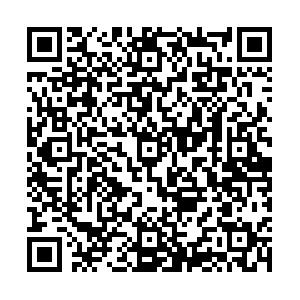| [1] |
SHELLY A, SIBERT E. Using logic programming to facilitate qualitative data analysis[J]. Qualitative sociology, 1986, 9(2): 145-161. doi: 10.1007/BF01314413
|
| [2] |
王铭铭. 西方人类学思潮[M]. 广西: 广西师范大学出版社, 2005.
|
| [3] |
钱民辉. 当代欧美教育人类学研究的核心主题与趋势[J]. 北京大学学报(哲学社会科学版), 2005(5): 206-213. https://www.cnki.com.cn/Article/CJFDTOTAL-BDZK200505031.htm
|
| [4] |
安·格雷. 文化研究: 民族志方法与生活文化[M]. 许梦云, 译. 重庆: 重庆大学出版社, 2009: 2.
|
| [5] |
MITCHELL J. Ethnography[M]//The sage handbook of social science methodology. Los Angeles, CA: Sage, 2007.
|
| [6] |
FETTERMAN D M. Ethnography. Step by step, 2nd ed[M]. London: Sage, 1998: 6.
|
| [7] |
陈向明. 质的研究方法与社会科学研究[M]. 北京: 教育科学出版社, 2000: 25.
|
| [8] |
滕星, 巴战龙. 从书斋到田野-谈教育研究的人类学范式[J]. 西北师大学报(社会科学版), 2005(1): 19-22. https://www.cnki.com.cn/Article/CJFDTOTAL-XBSD200501005.htm
|
| [9] |
李立, 等. 民族志理论探索与文本分析[M]. 北京: 人民出版社, 2017: 1.
|
| [10] |
庄孔韶. 人类学通论[M]. 北京: 中国人民大学出版社, 2020.
|
| [11] |
李亦园. 人类学视野[M]. 上海: 上海文艺出版社, 1996: 42-43.
|
| [12] |
刘玉皑. 民族志导论[M]. 北京: 民族出版社, 2018.
|
| [13] |
马林诺夫斯基: 江村经济[M]. 北京: 商务印书馆, 2001: 2.
|
| [14] |
大卫·M. 菲特曼. 民族志: 步步深入[M]. 龚建华, 译. 重庆: 重庆大学出版社, 2020.
|
| [15] |
克里福德·格尔茨. 文化的解释[M]. 韩莉, 译. 上海: 译林出版社, 1999: 5.
|
| [16] |
罗伯特·埃默森, 雷切尔·弗雷兹, 琳达·肖. 如何做田野笔记[M]. 符裕, 何珉, 译. 上海: 上海译文出版社, 2012: 2.
|
| [17] |
温森特·克拉潘扎诺. 赫尔墨斯的困境: 民族志描述中对颠覆因素的掩饰[M]//写文化. 高丙中, 等译. 北京: 商务印书馆, 2006: 83.
|
| [18] |
克里福德·格尔茨. 文化的解释[M]. 韩莉, 译. 上海: 译林出版社, 1999: 18.
|
| [19] |
劳伦斯·纽曼. 社会研究方法; 定性与定量的取向[M]. 郝大海, 等译. 北京: 中国人民大学出版社, 2021: 385-386.
|
| [20] |
CHRISTIAN J, JR CHURCHILL. Ethnography as translation[J]. Qualitative sociology, 2005, 28(1): 3-24. doi: 10.1007/s11133-005-2628-9
|
| [21] |
伯克·约翰逊, 拉里·克里斯腾森. 教育研究-定量、定性和混合方法[M]. 马健生, 等译. 重庆: 重庆大学出版社, 2012: 364.
|
| [22] |
王鉴. 深描是一种什么样的方法?——兼论深描在教育研究中的应用[J]. 山西大学学报(哲学社会科学版), 2022, 45(2): 123-130. https://www.cnki.com.cn/Article/CJFDTOTAL-SXDD202202015.htm
|
| [23] |
董轩. 重构常识: 教育民族志的方法与文本[M]. 上海: 华东师范大学出版社, 2021: 157-162.
|
| [24] |
格尔茨. 文化的解释[M]. 韩莉, 译. 南京: 译林出版社, 1999.
|
| [25] |
许烺光, 薛刚. 宗教·种性·俱乐部[M]. 北京: 华夏出版社, 1990: 19.
|
| [26] |
POEWE K O. Writing culture and writing fieldwork: the proliferation of experimental and experiential ethnographies[J]. Ethnos, 2010, 61(3-4): 177-206.
|
| [27] |
滕星. 书斋与田野——教育人类学研究的方法论、方法与技术[J]. 苏州大学学报(教育科学版), 2019, 7(1): 14-22. https://www.cnki.com.cn/Article/CJFDTOTAL-SZJK201901003.htm
|
| [28] |
拉德克利夫-布朗. 社会人类学方法[M]. 夏建中, 译. 北京: 华夏出版社, 2002: 66.
|
| [29] |
乔治·H. 米德. 心灵、自我与社会[M]. 赵月瑟, 译. 上海: 上海译文出版社, 1997: 263.
|

 点击查看大图
点击查看大图



 下载:
下载: